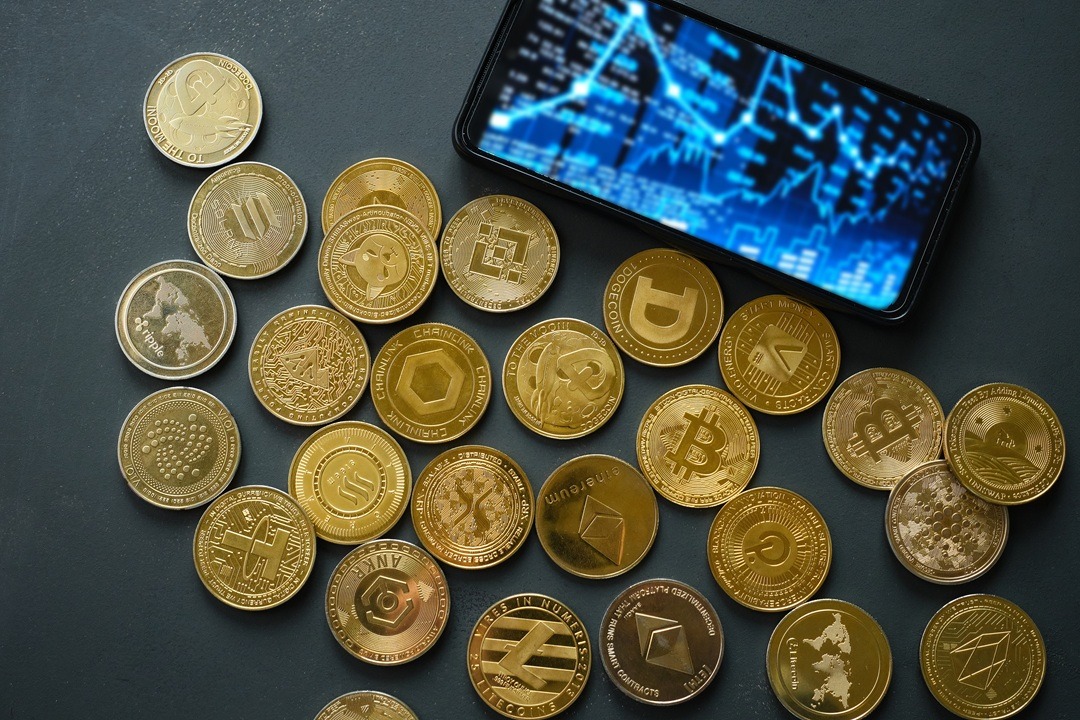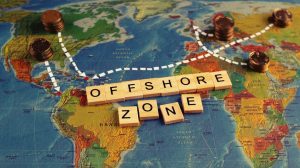Legal Info About Free Zone Offshore Banking in Bangladesh23 min read
Reading Time: 9 minutesOffshore banking allows individuals and companies to perform cross-border financial transactions with better privacy and fewer restrictions. Bangladesh authorities established special economic areas called “free zones” to function as platforms for offshore banking operations and to attract foreign investments.
Several legal considerations must be addressed when accessing offshore banking services through Bangladesh’s free zones.
The popularity of offshore banking has grown since it delivers effective methods for managing international business transactions and investment management. Business organizations can open offshore banking accounts within Bangladesh’s designated free trade areas. Effective management of this banking arrangement requires close attention to critical legal factors.
The article examines necessary compliance rules and protective standards which govern offshore banking operations in Bangladesh, including opening an offshore account in Bangladesh free zone.
Are There Specific Regulations for Offshore Banking in Bangladesh’s Free Zones?
The regulatory system developed by Bangladesh exclusively targets offshore banking operations inside its designated free zones. The central bank of Bangladesh oversees every financial institution and monitors all monetary exchanges nationwide.
The Bangladesh Bank partners with the Bangladesh Export Processing Zones Authority (BEPZA) to create and enforce rules for offshore banking services operating in Bangladesh’s free zones.
Some key regulations include:
- Banks need BEPZA licenses to operate offshore banking services within designated free zones. The Kingdom Bank enjoys complete authorization to provide digital offshore banking solutions to clients outside Bangladesh.
- Only registered companies and free zone residents can open offshore bank accounts. All funds must come from international economic activities according to regulations.
- Repatriation of funds from foreign currency accounts faces no restrictions if these accounts are permitted. Before transferring funds to Bangladeshi bank accounts located outside the free zone proper authorization must be secured.
- Offshore banks have to submit periodic reports to both BEPZA and the Bangladesh Bank detailing information about client onboarding procedures and presenting transaction data alongside account balances. The monitoring process empowers regulators to track possible illegal activities.
In Bangladesh offshore banking operations receive legal sanction within free zones and operate under strict supervision by BEPZA and the central bank.
The offshore financial system remains trustworthy because it uses strict regulations to enforce its operations.
Who Can Legally Access Offshore Banking Services in Bangladesh?
The regulations of Bangladesh together with free zone directives permit the following entities to establish and maintain offshore banking accounts.
- Export-oriented companies registered in free zones are eligible to utilize offshore banking services. The facilities that qualify include factories along with warehouses and other types of commercial spaces.
- Self-employed entrepreneurs and business operators residing in free zones who conduct international trade transactions have the ability to maintain offshore bank accounts in Bangladesh.
- Foreign investors who fulfill prescribed investment requirements can set up operations in free zones.
- Bangladeshi nationals employed overseas need secure financial management solutions for both taka and foreign currency deposits.
Bangladeshi individuals and companies that operate beyond free zones cannot access offshore banking services. Offshore banking accounts must permit legitimate international financial activities but must block domestic transactions that lack authorization.
To show legal use of an offshore account, banks need regular documentation submissions.
Only commercial entities based in Bangladesh export zones and international business people can legally open offshore accounts with banks like The Kingdom Bank operating in those zones. Proper documentation is key to remaining compliant.

What Documentation is Required for Legal Offshore Banking in Bangladesh?
To keep an offshore bank account legal in Bangladesh account holders must provide and maintain essential documents as defined by local laws.
- The documented proof shows registration or incorporation in a Bangladeshi free zone which verifies the legal standing of the account holder company or person.
- Proof of Address requirements demand that account holders supply utility bills or rental agreements showing their physical location within the free zone.
- Companies need to develop a business plan which explains their intended use of offshore banking accounts for activities related to international trade or investment.
- Source of Funds Documentation needs paper trails to show that the origins of the funds correspond with the foreign business activities of the account holder.
- The offshore bank provides regular Periodic Transaction Reports to regulatory bodies demonstrating compliance with balance thresholds and fund movement regulations.
Licensed offshore institutions including The Kingdom Bank must comply with KYC/AML due diligence requirements during the onboarding process.
Banks may investigate accounts to shut them down if required documents are not submitted or errors are found in documentation to uphold banking legal and ethical standards.
How Does the Bangladesh Bank Oversee Offshore Banking Activities?
As Bangladesh’s central bank Bangladesh Bank maintains active supervision of banking operations throughout the nation including offshore banking activities.
- Local and foreign banks that meet certain qualification standards receive operating licenses from the Bangladesh Bank to open branches and book offices in Bangladesh’s free zones. Through official procedures The Kingdom Bank obtained its operating license.
- Bangladesh Bank created prudential regulations along with reporting requirements through its collaboration with BEPZA to monitor offshore banking operations. Financial institutions must provide routine reports containing both transaction details and client financial statement information.
- Offshore bank branches face on-site inspections to verify their compliance with KYC/AML protocols and to ensure they follow risk management and financial standards covering liquidity, solvency and governance.
- Returns analysis that exposes suspicious transactions and irregular activities triggers further examination which leads to investigations if needed and disciplinary actions when misconduct is found.
- The organization partners with local law enforcement agencies and international watchdogs including the FATF to detect and prevent financial crimes including money laundering and terrorist financing.
While free zone offshore banking offers operational flexibility Bangladesh Bank supervision maintains financial system integrity and minimizes risk. Strict yet balanced regulations are in place.
Are There Tax Obligations for Offshore Banking in Bangladesh’s Free Zones?
Holders of free zone offshore banking accounts in Bangladesh must recognize that taxation represents an essential legal requirement.
- Profits and revenues generated from legitimate international business activities held in offshore accounts remain untaxed by Bangladeshi authorities.
- Interest earnings from deposited funds remain tax-exempt when both the source and expenditure of these funds follow free zone guidelines.
- When repatriated funds are introduced into local markets or used domestically they become subject to taxation within appropriate personal and corporate tax brackets. Prior approval must be taken.
- Bangladeshis employed outside their country remain exempt from domestic income tax on their foreign salaries. Interest income and capital gains from offshore foreign currency accounts are taxable by the country in which taxpayers live.
- Business entities are required to pay taxes on their local income or revenue following standard tax rules regardless of holding offshore accounts that have exemptions.
Bangladesh has created a comprehensive regulatory framework to control offshore banking activities taking place in its export processing zones along with free trade areas. Licensed digital banks like The Kingdom Bank allow customers to access secure banking services from anywhere in the world with no difficulties.
Individuals who hold accounts should become familiar with mandatory legal KYC standards and documentation protocols, approved entities as well as fund usage regulations. Maintaining compliance helps avoid penalties while ensuring the benefits of low-risk offshore accounts remain accessible.
Through The Kingdom Bank clients can easily access Bangladesh’s maturing offshore banking market which functions within a robust legal system.
Interested parties can learn about The Kingdom Bank through its online platform and direct interactions with relationship managers.
What are the Compliance Requirements for Offshore Banking in Bangladesh?
Organizations must comply with all applicable legal regulations before accessing offshore banking services in Bangladesh’s free trade zones. Offshore banking compliance centers around implementing Know Your Customer (KYC) regulations as well as Anti-Money Laundering (AML) procedures.
Offshore account operators like The Kingdom Bank in Bangladesh must verify account holder identities and confirm the origins of incoming funds. During account verification financial institutions must gather proof of address and tax records as well as details about the origin of deposited funds.
Financial institutions must implement continuous monitoring of transactions to identify any irregular financial behavior.
Foreign nationals desiring to open offshore accounts need to show their passport documentation and residential address proof from their nation of origin. The need for residency and employment paperwork depends on the individual account holder’s condition and their financial activity level.
Businesses together with individuals can prevent anti-money laundering violations by providing complete information about their transactions and background.
Tax compliance demands careful attention because it represents an essential obligation. Even though Bangladesh does not levy taxes on foreign profits account holders must uphold complete compliance with their domestic reporting requirements.
Individuals will face legal consequences when they do not complete their obligations. Tax implications across borders require the expertise of certified tax advisors.

Can Foreigners Legally Open Offshore Banking Accounts in Bangladesh?
Foreign nationals possess the legal authority to open offshore bank accounts in Bangladesh’s special economic zones. Existing regulations authorize foreign people and companies to establish bank accounts in specific free trade zones.
Multiple conditions must be satisfied by foreigners before they can initiate offshore banking accounts. To obtain offshore banking services people must provide a valid business or investment objective for their account.
Foreign nationals cannot use these accounts for personal needs or any activities that are unrelated to business matters.
Identity verification requires individuals to provide basic KYC documents alongside their valid passport. Business organizations must provide documents which confirm their incorporation status together with ownership arrangement details.
The account needs to maintain precise documentation that verifies its legitimate business operations at all times.
The Kingdom Bank and similar offshore banking institutions deliver financial services to international customers operating in specified special zones while maintaining compliance with legal and regulatory frameworks.
Through capital movement support, the system helps companies monitor their financial operations across international borders, facilitating free zone offshore banking for business.
How Does Offshore Banking in Bangladesh Relate to Money Laundering Laws?
Both Bangladeshi laws and international legal standards classify money laundering as a serious crime which results in harsh penalties for those who break the law. Offshore banks operating in special economic zones throughout the country must show complete adherence to anti-money laundering regulations.
The Kingdom Bank and similar financial institutions must perform complete KYC checks for all clients who open and maintain offshore accounts.
Financial institutions need to regularly review their transactions to identify any unusual activity patterns. Financial institutions must flag large cash deposits and purposeless wire transfers to high-risk locations as these transactions require additional investigation because they represent potential warning signs.
When financial institutions detect transactions without a logical source or purpose, they must report this information to national authorities and intelligence bodies. Financial institutions failing to meet regulatory standards will face license revocation and substantial monetary fines.
Offshore account holders are required to show documentation proving their funds stem from lawful sources. The banking system prohibits money laundering from criminal activities including tax evasion and terrorism.
Bangladesh’s offshore financial centers preserve their reputation and integrity by implementing strong anti-money laundering systems.
What Legal Protections are in Place for Offshore Banking Customers in Bangladesh?
Bangladesh’s legal framework provides offshore banking customers with defined rights and protective measures.
Financial entities licensed to operate in Bangladesh like The Kingdom Bank need to adhere to both their contractual obligations and existing statutory laws for their clients when offering these accounts.
Primary legal protection for offshore account holders comes from various distinct measures.
- Privacy and confidentiality of financial records. Banks require customer permission to share personal data but they must disclose information when requested by law enforcement authorities.
- Deposit insurance schemes and separate asset management systems provide protection for client assets. Banks need to protect customer funds during investment activities by adhering to precise regulatory standards.
- The national banking tribunal system functions as the platform for customers to settle their disputes. When banks demonstrate negligence or fraudulent behavior customers have the right to lodge complaints and seek compensation.
- When banks adhere to KYC and AML regulations, they create safeguards to prevent money laundering activities. Due diligence procedures function as safeguards that defend clients against unintended engagement in illegal activities.
- Customers can use services provided by the bank while adhering to the predetermined terms and conditions. Banks must have valid reasons before they can limit or deny contractual facilities.
- Government oversight through independent regulators. Prudential supervision helps banks ensure operational stability and safety while upholding fair banking practices.
The strong legal framework and ethical banking practices of Bangladesh’s offshore financial services help build user confidence.
Are There Restrictions on Capital Movement with Offshore Banking in Bangladesh?
While Bangladesh allows efficient cross-border fund transfers through offshore banking operations foreign exchange rules create specific operational limitations.
The government implements capital movement controls to handle balance of payment risks and counter money laundering activities.
The Kingdom Bank along with other financial institutions are required to report any wire transfers that exceed a specified threshold amount. Transactions that display suspicious traits or reach high volumes will trigger investigative actions from authorities.
Transactions with high-risk regions and sanctioned organizations may undergo intensified scrutiny or face suspension according to enhanced due diligence procedures.
These screening procedures exist to block evasion efforts against present international sanctions and trade embargoes.
Sending remittances through offshore digital bank accounts generally encounters no transfer restrictions, but capital account convertibility requires conditional authorization or predefined maximum limits, especially in Bangladesh free zone offshore banking for long-term investment funds and speculative financial movements.
Businesses operating with cross-border transactions and investments gain many benefits from offshore banking options available in Bangladesh’s special economic zones. Businesses and individuals have the responsibility to understand their legal compliance requirements according to applicable laws and procedures.
Authorized banks like The Kingdom Bank provide secure banking services by following all legal requirements.
You can obtain information about opening an offshore bank account with The Kingdom Bank through our website or by contacting one of our representatives.
We direct you during the application journey to inform you about your choices by strictly following Bangladeshi legal requirements.
About The Author





